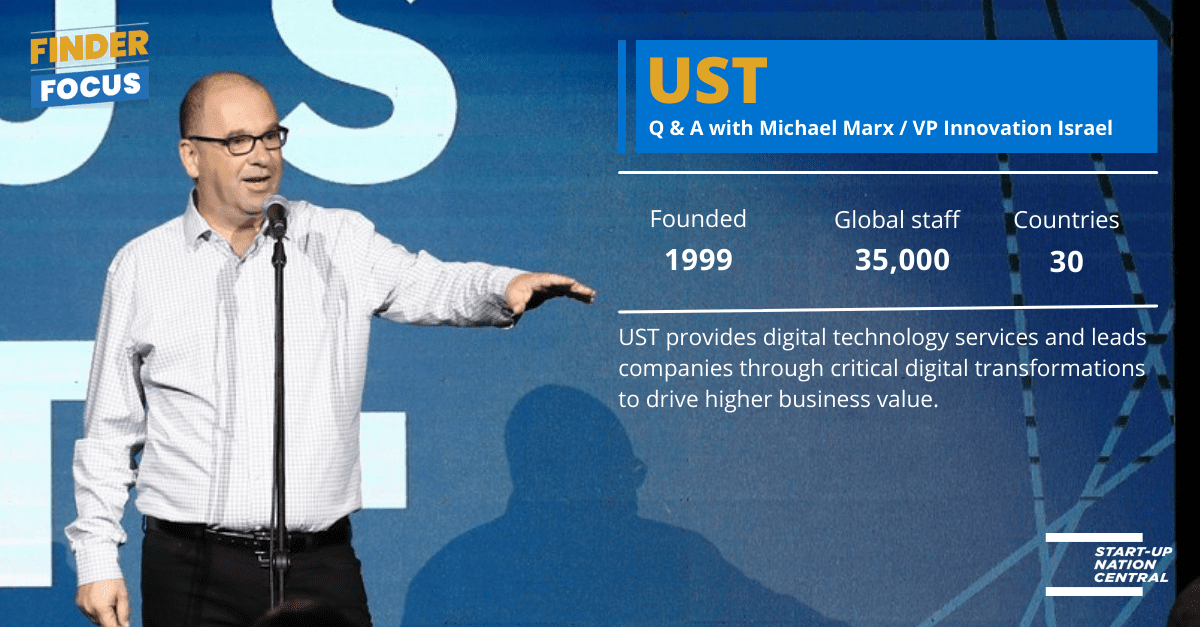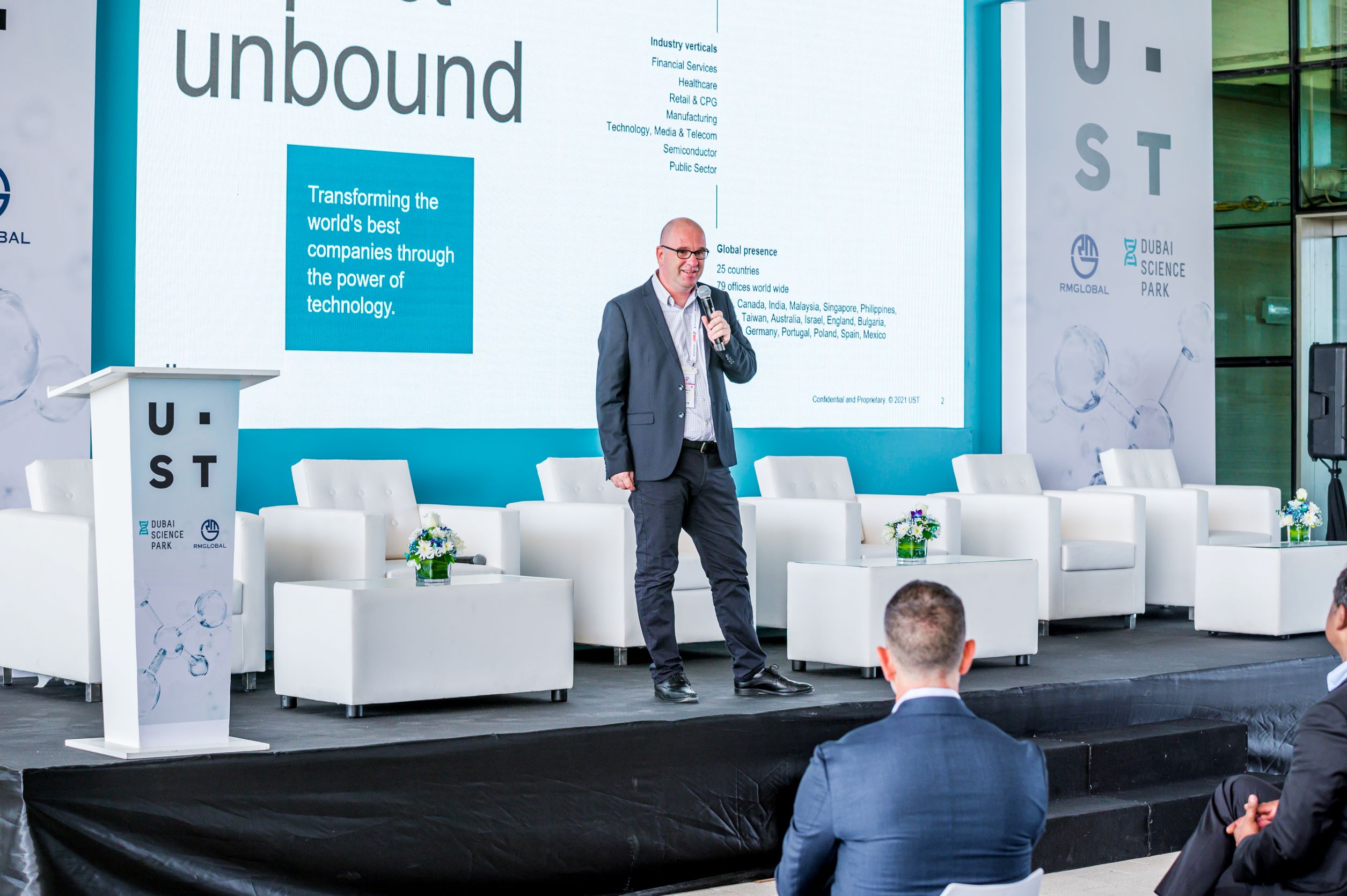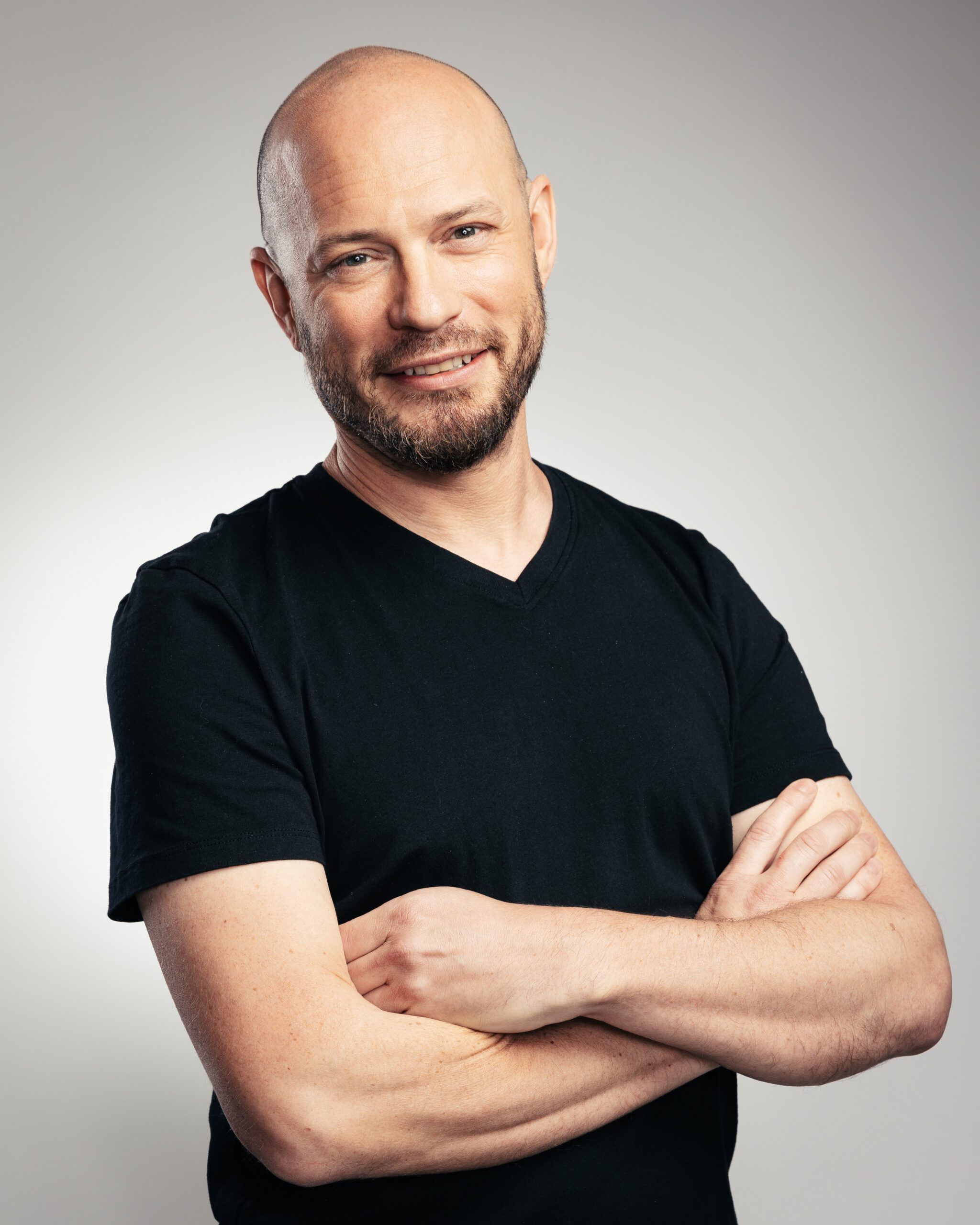
Michael Marx is Vice President of Israeli Innovation for UST, a global provider of digital technology and transformation services. As a veteran in the field of technological innovation, particularly in cybersecurity, Michael has first-hand experience with the growth of the tech sector in Israel. In a recent interview with Start-Up Nation Central, Michael discusses his journey in both the public and private sectors and gives unique insights on the Israeli corporate ecosystem.
“I became UST’s Israeli consultant and was thrilled to tackle the question of how we can utilize Israel’s innovations within UST.“
Start-Up Nation Central: Tell us how you got to where you are today.
Michael: My passion for entrepreneurship began early on, as a child growing up in Jerusalem in the eighties. In those days I was known as a small-time computer hacker, and this was even before the internet existed. Even though I wasn’t a math person myself, I very much enjoyed learning about new technologies. For this reason, I figured I would eventually branch out into my next passion – law.
However, I decided that upon completing army service I would first travel to Paris to study French at the Sorbonne for a while. Paris seemed like a great place to contemplate what I would do next, and it was! When I returned to Israel, I enrolled in law school – but I had zero intention of ever practicing it. True to form, I soon found myself working as a CTO at Avnet, the first cybersecurity company in Israel.
Then, in 2001, I started working for the government. Unfortunately, I can’t elaborate much on my specific position there. What I can say is that in my 19 years in the public sector I worked in the realm of R&D for technology. I was actually quite useful for the role there, as I was able to put to use the strategic skills that I attained from my law background, along with my work experience from the army.
Start-Up Nation Central: When did you know that you wanted to be a part of driving innovation in Israel? What was your first step?
In 2019, I decided to leave the public sector and turn my attention toward the “Israeli innovation movement” as I would call it, alongside social impact.
Michael: My first step was in late 2019 when I had to decide whether I want to pursue a cyber-oriented career or blend into the broader innovation ecosystem. Fortunately, I came across Cyberproof’s president, Yuval Wollman, who challenged me with a question broader than cyber – that is how UST, Cyberproof’s parent company, could benefit from the Israeli innovation landscape. I became UST’s Israeli consultant and was thrilled to tackle the question of how we can utilize Israel’s innovations within UST.
Start-Up Nation Central: Tell us a bit about UST and what they do.
Michael: UST is a global digital transformation company backed by Temasek. The company is headquartered in California, with 35,000 professionals across 30 different countries. We help companies across a variety of industries, such as health care, retail, and finance, including many Fortune 500 companies – at last count about 100 from that list.
With regard to Israel, UST had always viewed the country as an innovation hub but wasn’t fully tapping into Israel’s capabilities aside from its cybersecurity front. I worked to bridge that gap between them and Israel. Start-Up Nation Central was one of the first organizations I sought out to help me with a strategy to bridge that gap. My goal was to help establish the presence of multinational companies in Israel and help them become immersed in the Israeli ecosystem. It was Start-Up Nation Central that created a course for me, which really helped my mission.
Start-Up Nation Central: How has that experience been for you and what did you take away from it?
Michael: As someone coming out of a long career in the public sector, I must say it was very eye-opening. I had limited exposure to the Israeli ecosystem and venture building. Thankfully, Start-Up Nation Central took the challenge upon themselves to help me, and UST, succeed in Israel.
Start-Up Nation Central: How do multinationals and Israeli startups efficiently work together?

“In my opinion, big corporations need to establish face-to-face relationships with Israeli companies.”
Michael: Multinational corporations often can have a transactional outlook on their relationship with Israeli companies. This means that despite not having direct communication, they still demand new innovations and technologies. In my opinion, big corporations need to establish face-to-face relationships with Israeli companies. They should focus on a more direct and personal contribution to the Israeli ecosystem by offering their knowledge of different industries and helping smaller companies identify trends and improve their business models. Big corporations are able to leverage their vast experience and information for the benefit of these growing startups, even if they aren’t interested in doing business with them.
This creates a duality where Israeli companies can serve to benefit multinational companies, while the latter can provide knowledge from their vantage point and push Israeli innovators forward. We’ve witnessed the immense contribution of our leaders, conversing with Israeli start-ups about their product market fit, and we’ve received great feedback from Israeli companies allowing them to benefit from that corporate knowledge.
Start-Up Nation Central: I understand that you’ve developed new models to help new startups with their needs and use your support efficiently. Can you tell me about that model?
Michael: We understood from the get-go that we need to continuously develop business models that fit the ever-changing business climate in order to distill values between our corporate atmosphere and the Israeli ecosystem. We opened shop here just before Covid-19 started and it forced us to rapidly adapt – both on the corporate side and also in our Israeli operations. In early 2022, we launched a new model where we approach Israeli startups, as well as encourage them to proactively approach us, to give our support in areas where they are lacking because of their size. We share business leads with each other which allows both of us to benefit from the relationship. From a value standpoint, we see startups as partners and not as vendors or solution providers and we focus on product-ready, corporate-ready startups that have synergy with the focus areas and strengths of UST. In our new model, we leverage the startup and produce a joint Go-To-Market approach that includes exposure events and joint exhibitions. It is important for us to reflect a win-win approach to all parties.
Very often Israeli startups find themselves in a position where they have secured a deal, but encounter issues with the fulfillment of said deal. These companies are able to sell their services, but because of their size are unable to deliver their product to the masses.
For example, we have a relationship with an Israeli retail-tech established startup. At a certain point, they requested that we become their primary contractor in an innovative supermarket deal in the United States. With our support,, they were able to grow exponentially and deliver on their promises.
Start-Up Nation Central: What does success look like for you in regard to this mission you have set out on?

“My goal is to support the growth strategy of our company by helping Israeli startups expand their reach on a global level.”
Michael: I think strategy development is a perpetual process. From a UST point of view, we are constantly seeking new business opportunities and ways to innovate – whether that be in-house innovations or collaborative innovations. My goal is to support the growth strategy of our company by helping Israeli startups expand their reach on a global level.
Start-Up Nation Central: When all is said and done, what would you like your legacy to be?
Michael: I would like to be remembered as a small footnote in the expansion of the Israeli corporate ecosystem. I also work toward making a social impact on the Israeli community. I am a board member of Nirim, one of the most influential “At Risk Youth” NGOs in Israel, so part of my passion also goes towards helping solve social issues.
Start-Up Nation Central: What should corporate executives and innovation scouts around the world know about Israel?
Michael: Israel has a very unique ecosystem in that everyone knows each other and sees each other with a certain frequency. If you don’t know each other yet, then at the very least you have several mutual connections. Israel is known to be one of the biggest innovation hubs and people from Israel are known to be successful, agile, and friendly. People here have high aspirations for the future and are go-getters. Nobody wants to waste any time, so they’re very direct and passionate about reaching their goals.
Start-Up Nation Central: Can you recommend for our global audience a fun activity or favorite restaurant when they come to Israel?
Michael: Go to Jerusalem! Every stone you see has its own distinct story. Jerusalem has multiple layers of history, from several cultures, and there’s no end to the amount of knowledge you can obtain by just walking around for a day in Jerusalem and asking questions.
Check out UST on Start-Up Nation Finder.

Phillip Stark is the Senior Creative Copywriter at Start-Up Nation Central, a non-profit organization that strengthens Israel’s innovation ecosystem and connects it to global challenges and stakeholders.
